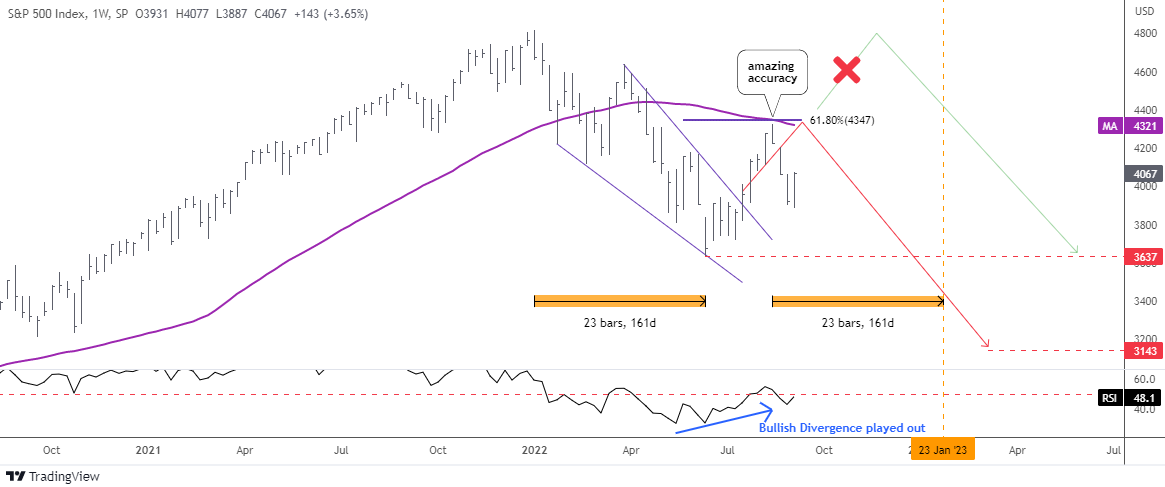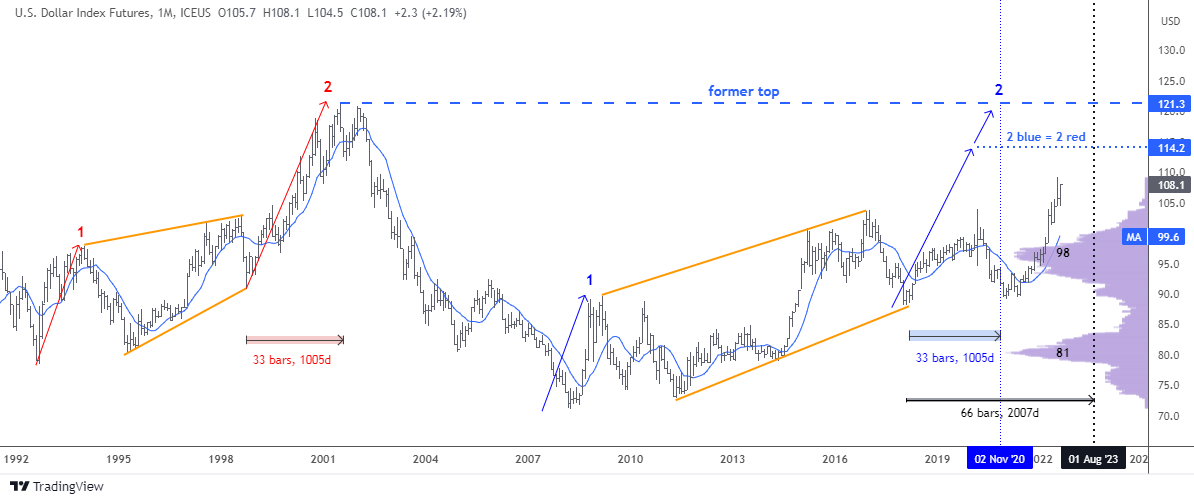The Excess Phase Peak pattern is a very common transitional phase for the markets where psychology and economic trends shift over time. Global markets typically require periods of pause, reversion, or a reset/revaluation event to wash away excesses.
We’ve seen these types of setups happen near the DOT COM and 2007-08 market peaks. What happens is traders are slow to catch onto the shifting phases of the Excess Phase Peak and sometimes get trapped thinking, “this is the bottom – time to buy.”
The reality is that as long as the individual phases of the Excess Phase Peak continue to validate (or confirm), then we should continue to expect the next phase to execute as well. In other words, unless the Excess Phase Peak pattern is invalidated somehow, it is very likely to continue to execute, resulting in an ultimate bottom in price many months from now.
The 5-Phases Of The Excess Phase Peak Pattern
The Excess Phase Peak Pattern starts off in a very strong rally phase. This rally phase normally lasts well over 12 to 24 months and is usually driven by an extreme speculative phase in the markets.
Once a price peak is reached and the markets roll downward by more than 7~10%, that’s when we should start to apply the five unique phases of the Excess Phase Peak Pattern. If each subsequent phase validates after the peak, then the Excess Phase Peak Pattern is continuing. If any phase is invalidated, then the pattern has likely ended.
For example, if we start by completing Phase #1 & #2, then the market rallies to a new all-time high – that would invalidate the Excess Phase Peak Pattern.
Here are the Phases of the Excess Phase Peak Pattern:
- The Excess Phase Rally Peak
- A breakdown from the Excess Phase Peak sets up a FLAG/Pennant recovery phase.
- Sets up the Intermediate support level – the last line of defense for price.
- Price retests #3 support & breaches the support level – starting a new downtrend.
- The final breakdown of the price is below the Phase 4 support level. This usually starts a broad market selling phase to an ultimate bottom.
Continue reading "The Excess Phase Peak Pattern" →




